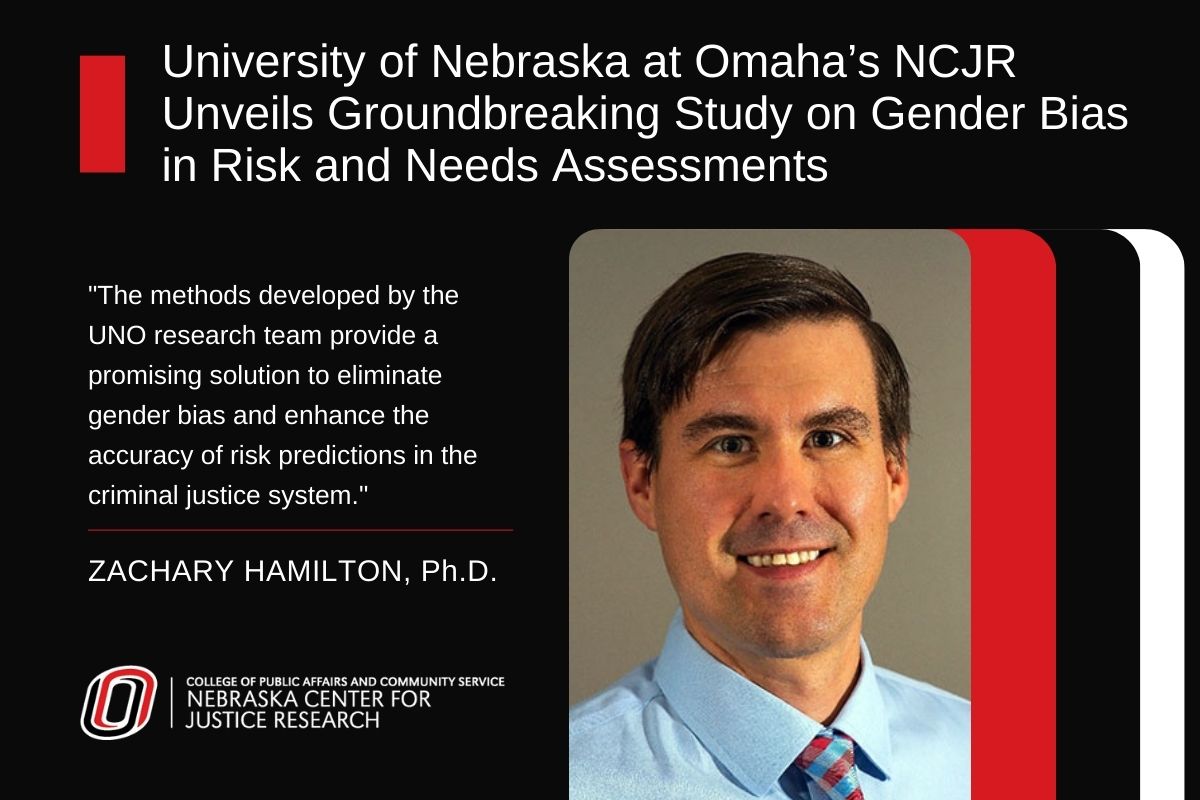University of Nebraska at Omaha Reveals Gender Bias in Criminal Justice Risk Assessments
- contact: Debbie Vihstadt - College of Public Affairs and Community Service
- phone: 402554.3033
- email: dvihstadt@unomaha.edu

In a groundbreaking collaboration National Institute of Justice, Dr. Zachary Hamilton and University of Nebraska at Omaha's (UNO) Nebraska Center for Justice Research (NCJR) have conducted a comprehensive study that sheds light on inherent gender bias in conventional Risk and Needs Assessments (RNAs) within the domain of criminal justice. The research, spanning ten states and involving a sample of over 250,000 individuals under correctional supervision, reveals critical insights into the accuracy and fairness of risk predictions.
Despite claims of gender-neutrality, conventional RNAs have inadvertently displayed bias, disproportionately classifying females into higher risk levels. This revelation comes to the forefront as a result of a rigorous study analyzing and eliminating the effects of biases in the development of the Modified Positive Achievement Change Tool (MPACT).
The study, which is poised to redefine the landscape of risk assessment, uncovered significant disparities in recidivism rates based on gender. Conventional RNAs, touted as gender-neutral, exhibited discernible bias, particularly against females, leading to overclassification.
"The findings from our research have far-reaching implications for agencies employing RNAs nationwide," remarked Dr. Hamilton. "The methods developed by the UNO research team provide a promising solution to eliminate gender bias and enhance the accuracy of risk predictions in the criminal justice system."
In their redevelopment of the recently created MPACT assessment, Dr. Hamilton and the NCJR researchers employed innovative RNA development methods to effectively reduce gender bias, underscoring the importance of evaluating existing tools for overclassification and implementing methods that ensure fairness while maintaining robust predictive validity.
Our commitment to addressing gender bias in RNAs is a step towards a more equitable and effective criminal justice system."
"Our commitment to addressing gender bias in RNAs is a step towards a more equitable and effective criminal justice system," emphasized Dr. Hamilton. The research not only benefits correctional practitioners but also contributes to the broader mission of fostering fairness and accuracy in the justice system.
This research serves as a clarion call for a comprehensive reevaluation of current RNA practices, urging stakeholders to adopt methodologies that eliminate gender bias and contribute to a justice system that is fair, accurate, and equitable. The insights gained from this study mark a significant stride towards achieving these goals, providing a roadmap for the future of risk assessment within the criminal justice domain.